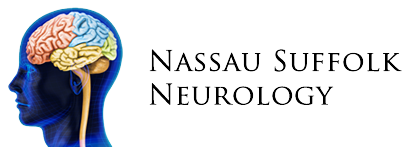Can A Neurologist Diagnose Balance Issues?

It happens without a second thought, but maintaining balance is actually a complicated system. To maintain proper balance, several parts of the body’s nervous system must communicate efficiently and work properly. While inner ear problems cause the majority of balance issues, there can also be neurological causes for balance issues. At Nassau Suffolk Neurology, our neurologist can diagnose and treat balance dysfunctions.
Can A Neurologist Diagnose Balance Issues?
Patients dealing with balance disorders often complain of dizziness, vertigo, or the feeling of being off-center. Since balance is maintained through a series of complex interactions, it is often difficult to determine what is causing the issue. Numerous conditions can cause balance problems, and their cause is typically related to specific symptoms. Patients may experience vertigo, dizziness, disorientation, and have difficulty focusing their eyes. Our team at Nassau Suffolk Neurology will review your medical history and conduct a neurological examination. Some of the balance disorder tests we may use include:
- Hearing tests – Many balance problems are a result of vestibular problems.
- Blood Pressure Tests – If your blood pressure drops when you stand up, this could signify that a heart condition causes your balance issues.
- Electronystagmography and Videonystagmography Tests – These tests are used together to record your eye movements through electrodes and small cameras.
- Posturography Test – A posturography test helps determine which balance systems you most depend on. You will try to stay standing on a moving surface during this test.
- Rotary Chair Test – You sit in a computer-controlled chair that slowly moves, and our neurologist analyzes your eye movements.
- Vestibular Evoked Myogenic Potentials Test – Our neurologist will attach sensor pads to your forehead, neck, and under-eye area to measure the tiny changes in muscle contractions in reaction to sounds.
When the cause of your balance issue is determined, an effective treatment plan can be implemented. If you are suffering from a balance disorder, our team can make recommendations for rehabilitation to help restore your balance and coordination.
Contact Us
Our team at Nassau Suffolk Neurology offers a variety of diagnostic tests for those who experience balance issues. Be sure to contact us today to learn more about balance disorders and schedule an appointment.
